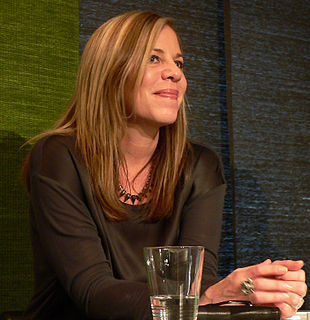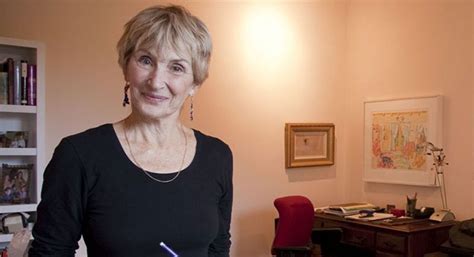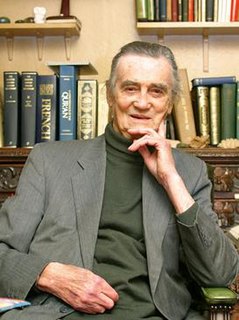A Quote by Jean Cocteau
A man's truest self realizations might require him, above all, to learn to close his eyes: to let himself be taken unawares, to follow his dark angel, to risk his illegal instincts.
Related Quotes
Some souls think that the Holy Spirit is very far away, far, far, up above. Actually he is, we might say, the divine Person who is most closely present to the creature. He accompanies him everywhere. He penetrates him with himself. He calls him, he protects him. He makes of him his living temple. He defends him. He helps him. He guards him from all his enemies. He is closer to him than his own soul. All the good a soul accomplishes, it carries out under his inspiration, in his light, by his grace and his help.
No man could bring himself to reveal his true character, and, above all, his true limitations as a citizen and a Christian, his true meannesses, his true imbecilities, to his friends, or even to his wife. Honest autobiography is therefore a contradiction in terms: the moment a man considers himself, even in petto, he tries to gild and fresco himself. Thus a man's wife, however realistic her view of him, always flatters him in the end, for the worst she sees in him is appreciably better, by the time she sees it, than what is actually there.
Turning the pages of scriptural history from beginning to end, we learn of the ultimate pioneer-even Jesus Christ. His birth was foretold by the prophets of old; His entry upon the stage of life was announced by an angel. His life and His ministry have transformed the world. . . . May we ever follow Him.
In the present age, man proves his separation from his Creator by his spirit of self-sufficienc y and positive rejection of God. The present issue between God and man is one of whether man will accept God's estimate of him, abandon his hopeless self-struggle, and cast himself only on God who alone is sufficient to accomplish his needed transformation.
The young man who addresses himself in stern earnest to organizing his life-his habits, his associations, his reading, his study, his work-stands far more chance of rising to a position affording him opportunity to exercise his organizing abilities than the fellow who dawdles along without chart or compass, without plan or purpose, without self-improvement and self-discipline.
It is man's intrinsic and irreducible self-responsibility to humanize himself, to exercise his entire range of rational and moral resources to raise his mode of being and seeing and acting above not just that of animals, but also above that of the majority of subhuman (never to be self-realized) humans who will never draw themselves into a self-punishing position of focal self-diagnosis and self-accountability.
A long-dead angel who thought to own me,” was his enigmatic answer, the silver in his eyes almost liquid. “I tore out his throat. After that, I ate his liver and his heart. The remaining internal organs weren’t as tasty so I gave them to his other creatures.” Elena’s hand tightened on the handle of the knife, conscious Naasir carried gleaming blades of his own in the sheaths strapped to his arms. “I wouldn’t think a vampire who killed an angel would be permitted to live.” A slow, feral smile. “I didn’t say I killed him.
It is God's earth out of which man is taken. From it he has his body. His body belongs to his essential being. Man's body is not his prison, his shell his exterior, but man himself. Man does not "have" a body; he does not "have" a soul; rather he "is" body and soul. Man in the beginning is really his body. He is one. He is his body, as Christ is completely his body, as the Church is the body of Christ
Certain mystical philosophers have personified Destiny, and from this point of view each man's personal destiny is his archetype or "other self"--his "angel"--with whom he must be reunited if he is to rise above his fragmentary identity as a worldling and become whole, as he is (and always has been) in the mind of God.
To follow Christ is to become more like Him. It is to learn from His character. As spirit children of our Heavenly Father, we do have the potential to incorporate Christlike attributes into our life and character. The Savior invites us to learn His gospel by living His teachings. To follow Him is to apply correct principles and then witness for ourselves the blessings that follow.
For although a man is judged by his actions, by what he has said and done, a man judges himself by what he is willing to do, by what he might have said, or might have done—a judgment that is necessarily hampered, not only by the scope and limits of his imagination, but by the ever-changing measure of his doubt and self-esteem.







































